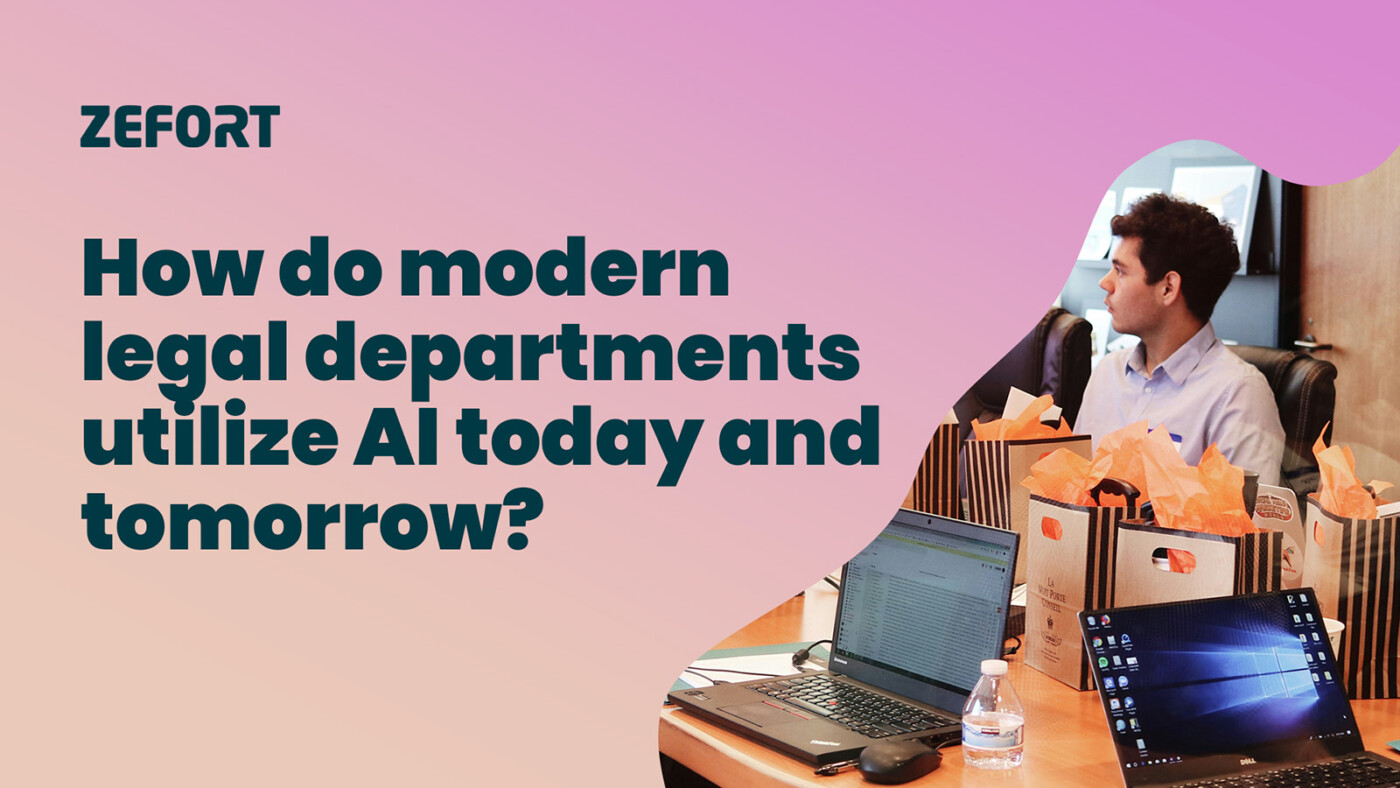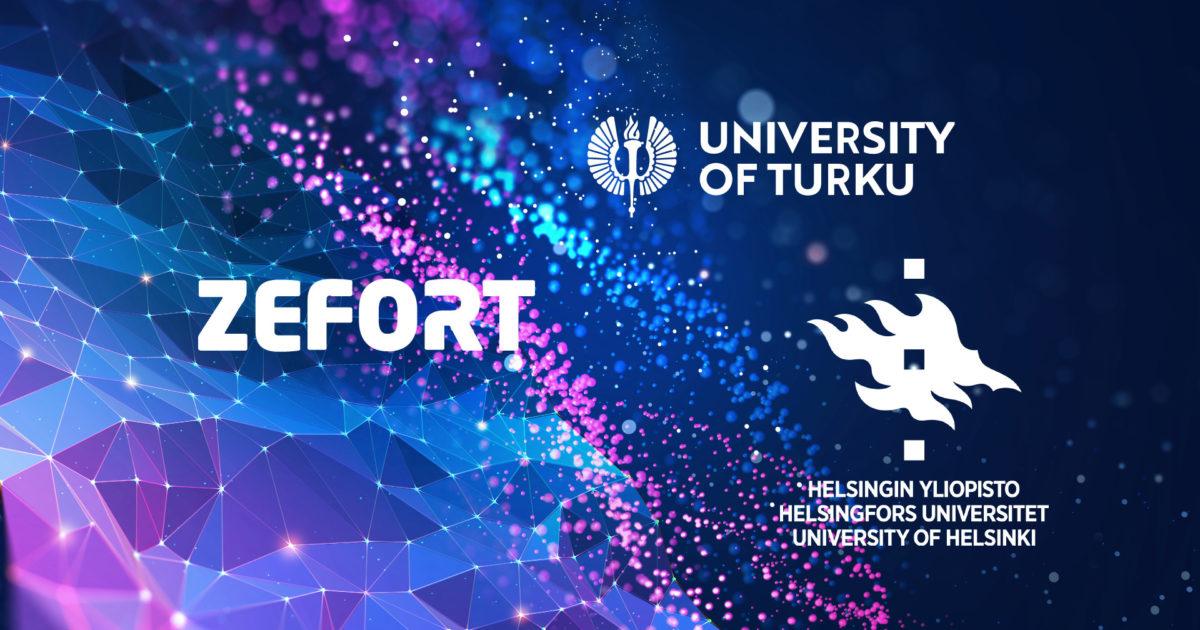AI has finally become a practical, everyday tool for legal teams and individual lawyers. This post summarizes the thoughts by Pessi Honkasalo and Henna Tolvanen as they explain how they use AI tools in their day-to-day work and what customers have come to expect from legal teams.
To hear their own words, you can watch a recording of the recent Fireside Chat, hosted by Zefort’s own Niklas Hakalax (recording in Finnish).
Modern legal departments hold a central role
A modern legal department is a proactive team that can flexibly adapt to changing situations and utilize technology, such as AI and automation to its benefit. By combining technology and best practices, modern legal departments can evolve the company’s working culture and strive toward higher efficiency, accuracy and, eventually, higher value.
Today, legal departments have a key role in supporting the company executing its strategy and meeting its operational goals, while supporting and fostering innovation.
“Legal departments are no longer isolated islands for legal matters, they have become a core part of the business and operation of a company,” says Henna Tolvanen.
From early adapters to business as usual
In just a couple of years, the use of advanced technology has evolved quite a lot. For example, while a few years ago AI-powered features focused on search capabilities and managing large amounts of data, today AI tools help legal teams to draft and generate actual legal content.
AI and legal technology is no longer for visionaries and early adopters, but practical tools for essentially anyone working in the legal field – today no-one questions the impact of technology for the legal department.
However, both Pessi and Henna stress that instead of jumping head first into using new technologies and working methods, companies have to set boundaries and understand what they are doing.
In the case of AI, this means making sure that all new practices meet ethical, legal and contractual requirements. From an ethical point of view, the use of AI must be transparent, fair and non-discriminatory. It also has to consider things like data privacy, GDPR, intellectual property and any business sector specific regulations. Finally, the use of AI must adhere to any contractual requirements between a customer and a service provider, for example.
“In the legal profession, we are pretty good at identifying and anticipating potential risks in advance, which makes trying out new things fairly safe,” notes Henna Tolvanen.
Practical use of AI
Both Pessi and Henna use generative AI, such as ChatGPT, regularly. The use cases include creating summaries, generating and polishing text and overall obtaining new ideas and sparring them with the AI. Naturally, all use must consider data privacy and confidentiality requirements.
“We have constant dialogue with our customers on the use of AI: what is our policy on the use of AI, what kind of guidance we use, how do we follow-up and make things transparent,” says Pessi Honkasalo.
While there’s no need for lawyers to understand coding or the detailed inner workings of AI algorithms, having interest in the technology can be a definite advantage. Understanding how generative models work, for example, help get the most value out of them.
Going forward, Pessi and Henna anticipate that legal teams will become increasingly multidisciplinary by introducing more technical competence to the team to support the legal professionals.
What customers expect from modern legal teams?
Over the last few years, there’s been a clear development in what customers expect from modern legal services. Customers have become more interested in how the actual legal work is done and they expect the legal teams to utilize technology.
However, the customer driver does not appear to simply cut costs – they see the benefit of new technology in speeding up the work – making the process efficient and reliable. This, in turn, can eventually make the work more cost-effective at the same time.
“It’s a very positive thing that customers are interested in how legal services are provided and raise the bar. This pushes the legal service providers to develop and evolve,” says Henna Tolvanen.
Despite the development of technology, the legal profession will remain a “human business” – technology will give experts more room to shine where they are at their best.
Watch the entire Fireside Chat with Pessi Honkasalo and Henna Tolvanen.





